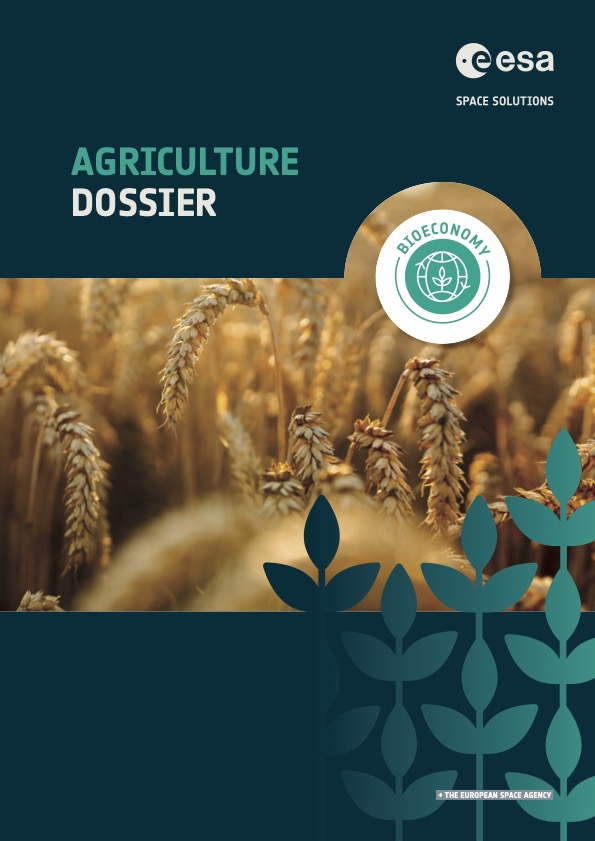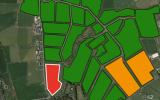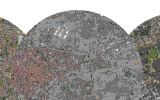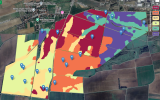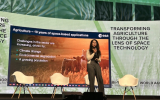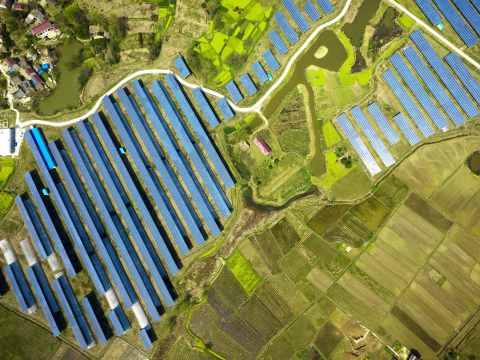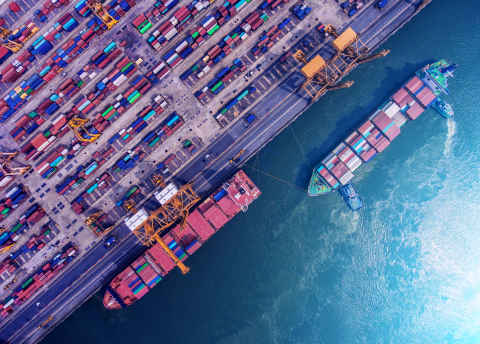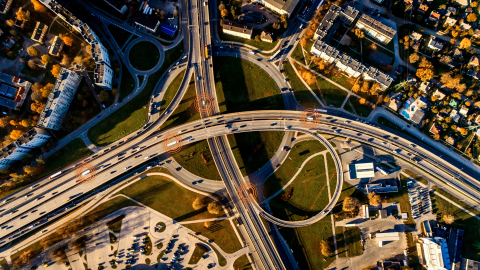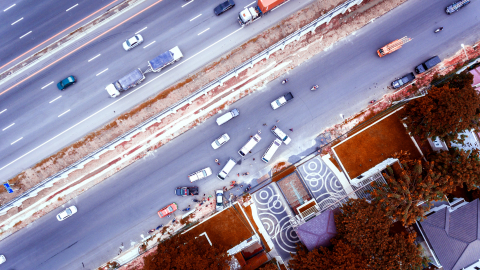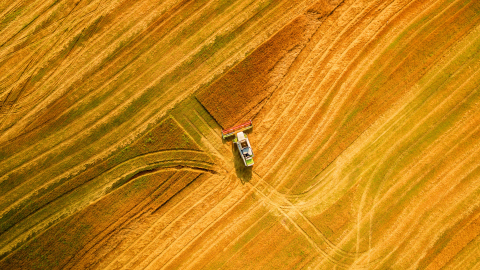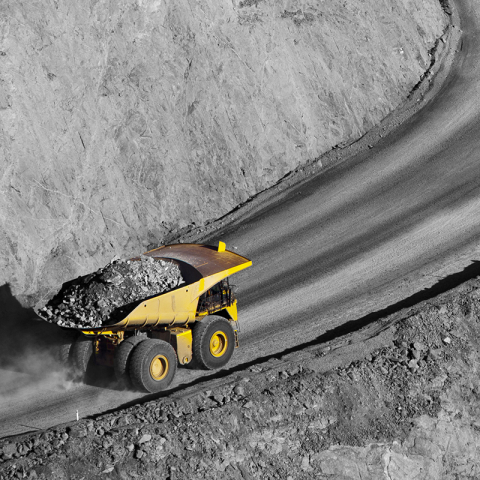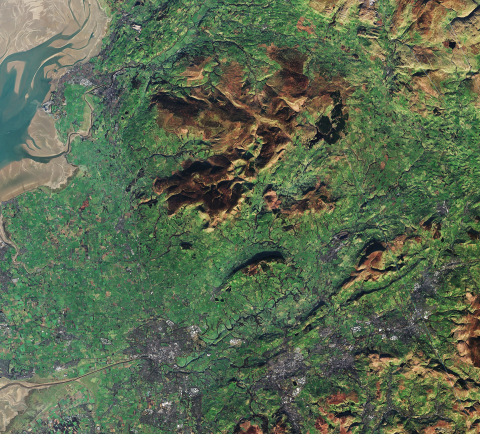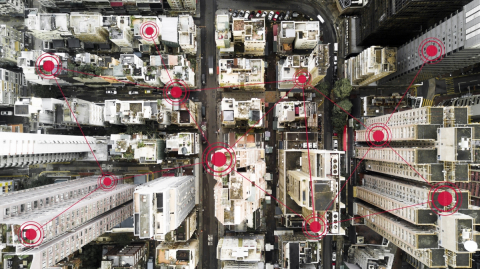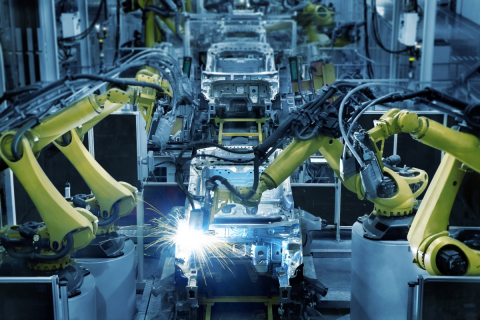On this page
Overview
SPACE FOR THE BIOECONOMY
Supporting sustainable and circular practices in the bioeconomy through space
The bioeconomy is a dynamic and progressive field that brings together technological advancements, policy frameworks, and innovative practices to promote a sustainable future trajectory for our economy. It is defined as the sustainable production, utilisation, and conservation of biological resources—such as crops, woody biomass, algae, and marine organisms—encompassing knowledge, science, technology, and innovation to deliver sustainable solutions across all economic sectors.
Driven by increased environmental awareness and promising economic opportunities, the bioeconomy leverages renewable biological resources and new technologies to reduce dependence on fossil fuels, mitigate climate change, and promote resource efficiency. It plays a crucial role in achieving the UN Sustainable Development Goals (SDGs) and the climate change targets, while also stimulating knowledge-based economic growth, generating employment, fostering innovation, enhancing community development, and improving food security and health.
Watch our video
Vision
ESA's Business Applications and Space Solutions (BASS) programme sees a future where innovative space-based technologies revolutionise sustainability in the bioeconomy.
By fostering technological advancements and nurturing cross-sectoral collaborations, we aim to contribute to a circular society that meets global needs for food, energy, and resources.
Our commitment extends to preserving ecosystems and achieving net-zero emissions, ensuring a sustainable and prosperous planet for generations to come.
Challenges
The challenges facing the bioeconomy are many and varied. Space technologies are helping address some of the major topics including:
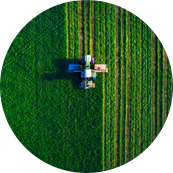 |
 |
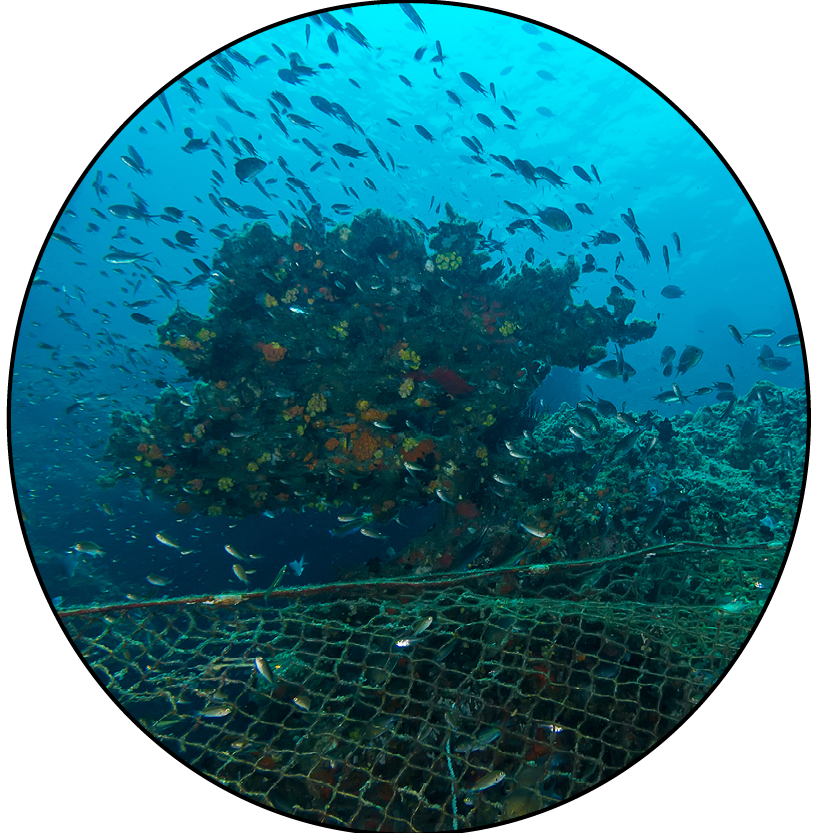 |
Sustainable Agriculture |
Sustainable Forestry |
Sustainable Fisheries |
| Crop management and resilience Precision agriculture Soil health and fertility Irrigation efficiency Pest and disease management Agri-tech solutions Farm financial services Sustainable farming |
Pests and disease management Soil recovery and preservation (Wild)fire, flooding and other natural disaster mitigation Carbon trading Carbon capture & Biomass estimation Biomass as a fuel |
Illegal, Unregulated and Unreported fishing (IUU) Overfishing and stock depletion Habitat destruction and bycatch Product traceability and certification Ghost gears and marine pollution Monitoring of Harmful Algae Blooms (HABs) |
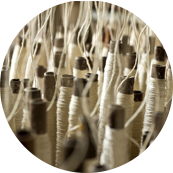 |
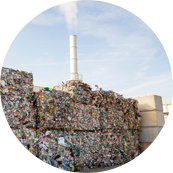 |
 |
Sustainable Textiles |
Waste Management |
Water Resources |
| Sustainable fibre production Textile recycling and upcycling Energy efficiency in textile manufacturing Waste management and reduction Innovative bio-based textiles Sustainable supply chain Water reduction |
Recycling and resource recovery Organic waste management Hazardous waste management Waste-to-energy technologies EPR tools Electronic waste management Plastic pollution and microplastics management |
Digitising water basins to improve water resilience |
How can space help the bioeconomy?
Space-based services and digitisation technologies are frequently viewed as a key driver in transforming productive sectors of the bioeconomy. Some of the many use cases of space assets include:
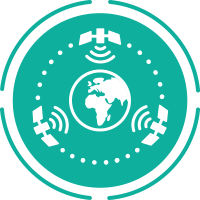 |
Satellite Communications (Satcom)Applications in the bioeconomy sector can use satcom technology to:
|
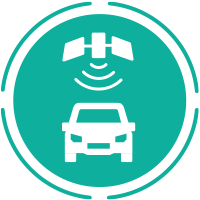 |
Global Navigation Satellite System (GNSS/Satnav)Satnav systems can help with many aspects of the bioeconomy by:
|
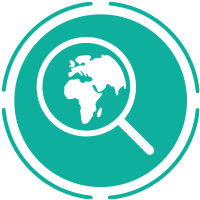 |
Satellite Earth Observation (SatEO) and Remote Sensing (RS)SatEO and RS can be used to:
|
Socio-economic Impact
Over the past ten years, around 50% of the BASS Portfolio has been driven by the Green Transformation and this number is growing rapidly.
The figures below relate to projects carried out in the agriculture, forestry and fisheries sectors:

Bioeconomy Initiatives
From sustainable agriculture, forestry, fisheries, and bioenergy production, the impact of space technology has massive potential. ESA has supported numerous projects in recent years, helping to transform various sectors of the bioeconomy.
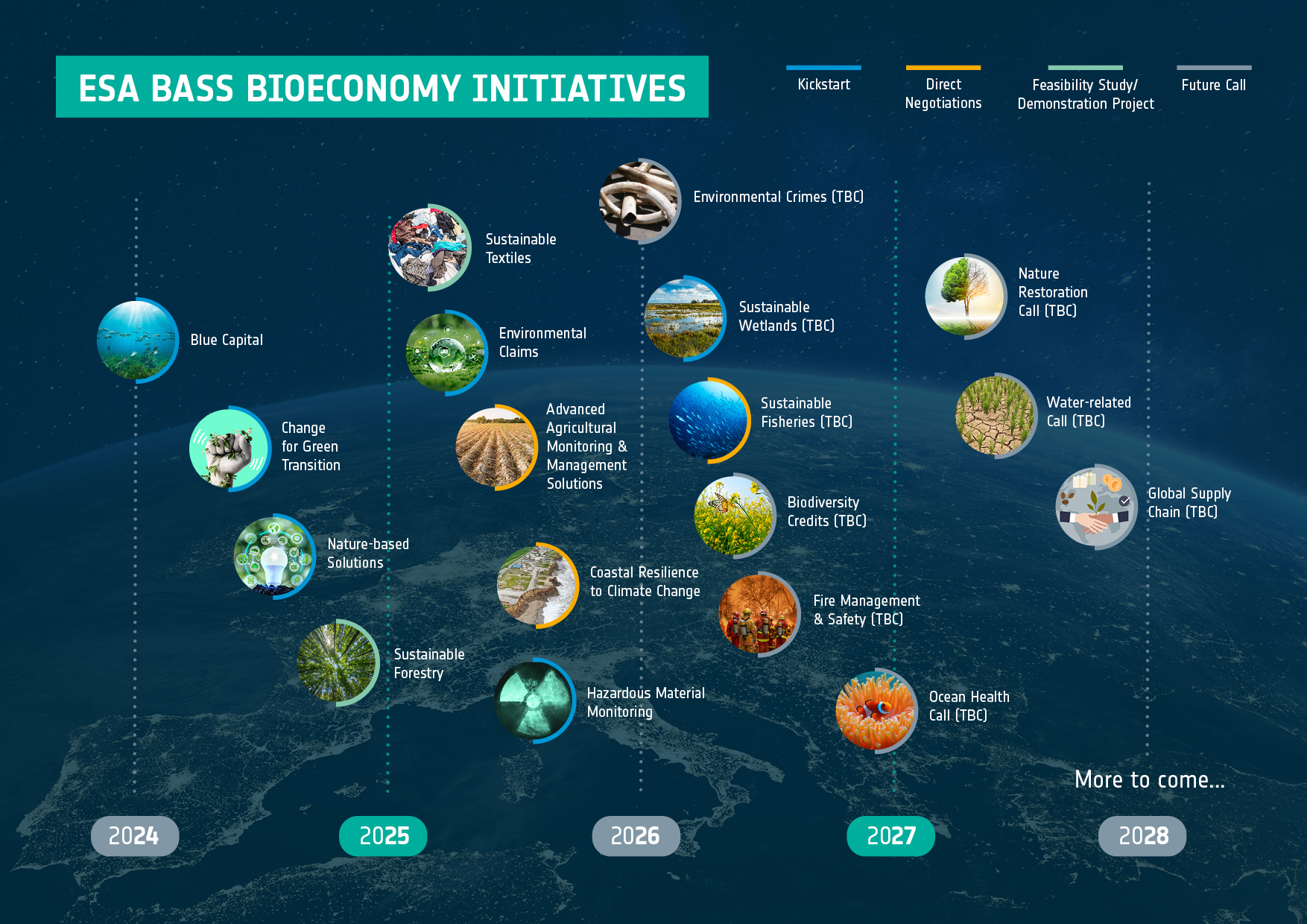
Bioeconomy Task Force
ESA officially launched the Space for Bioeconomy Task Force in October 2024. Its main focus will be to bring key stakeholders from the various bioeconomy sectors together to address the challenges they face around sustainability.
Work with us
We work closely with a wide range of stakeholders across multiple sectors to deliver innovative solutions to the challenges facing the bioeconomy. These include users, service providers, institutions, investors and more.
 To find out more about ESA's work with the bioeconomy or to get involved please contact the bioeconomy team lead, Beatrice Barresi, on business@esa.int.
To find out more about ESA's work with the bioeconomy or to get involved please contact the bioeconomy team lead, Beatrice Barresi, on business@esa.int.
Find out more about our funding opportunities




